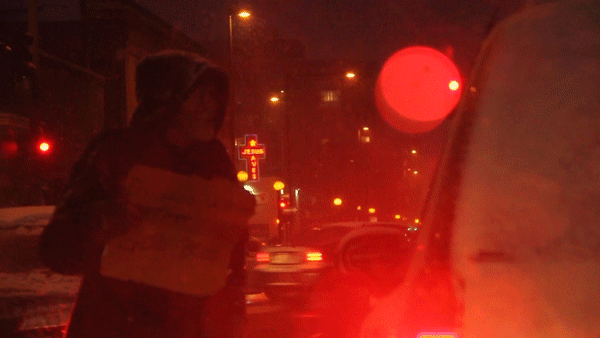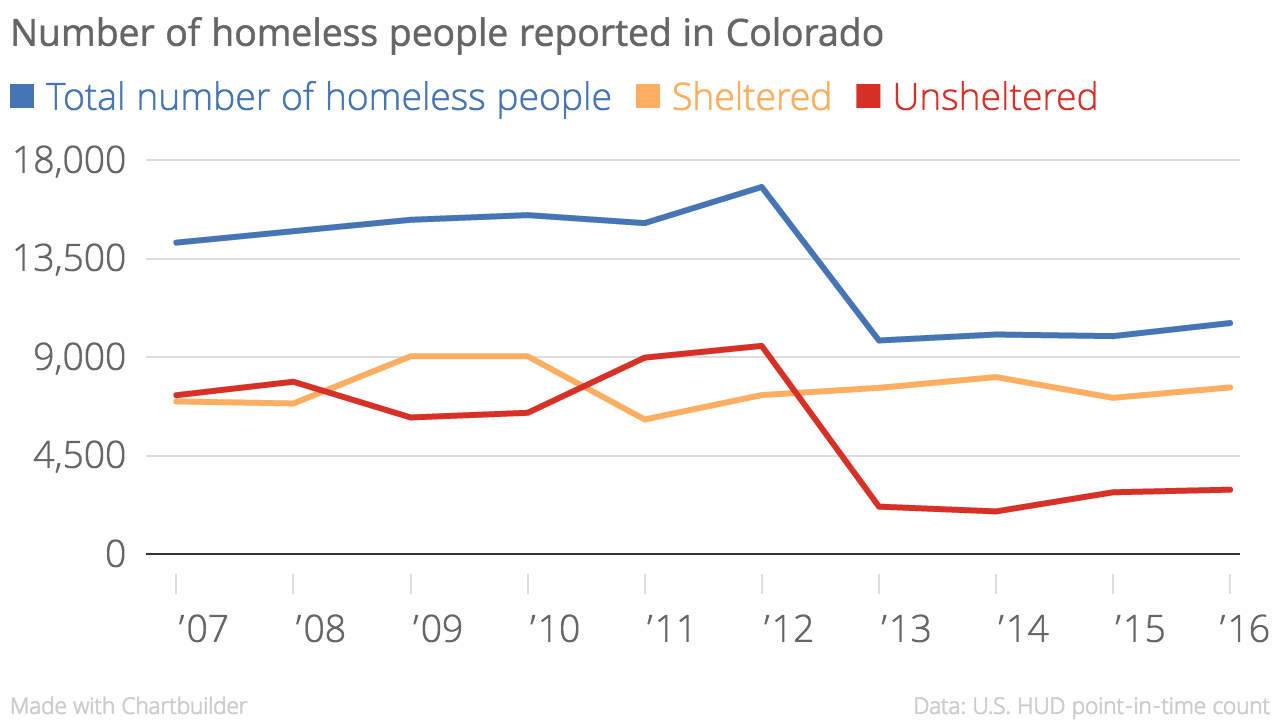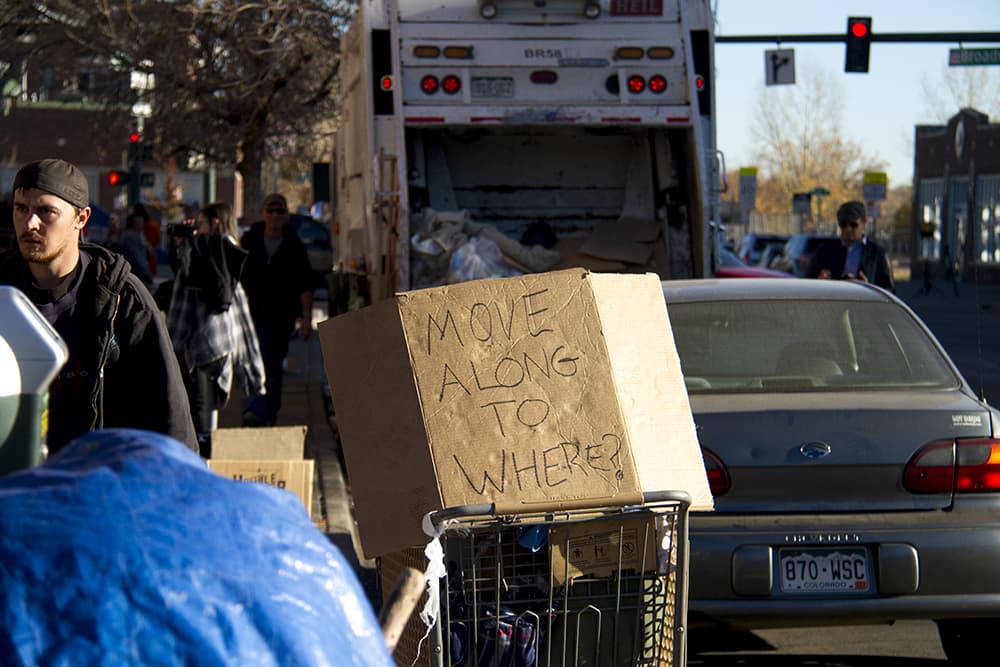The federal government estimates that the number of people experiencing homelessness nationwide continued to decline in 2016, but not in Colorado.

In all, about 550,000 people were living without a permanent home in January 2016, when the U.S. Department of Housing and Urban Development conducted its most recent "point-in-time" survey. The report, released Thursday, estimated that homelessness nationwide dropped about 2.6 percent from last year.
Colorado, however, was estimated to have 10,550 homeless people in 2016. That's an increase of 6 percent from the previous year. California, Washington, Oklahoma and D.C. also saw increases.
However, it's important to note there's a lot of variability in this number, especially because the data is collected on just a single day each year, when service providers throughout the nation are asked to count both sheltered and unsheltered homeless people.

As you can see above, the estimated number of homeless people has indeed risen since marijuana legalization happened in 2014, but it remains dramatically below the 2012 estimates. The numbers fell a lot in 2013, mostly due to a drop in the number of "unsheltered" people -- who are much harder to count.
The count of "unsheltered" people in particular can swing dramatically from year to year.
"It’s a pretty limited tool, because it depends on volunteers, people from different service provision agencies going out to find people and have them complete the survey. Some years you have more volunteers than others. It also depends on people being willing to fill out the survey," said Cathy Alderman, spokeswoman for the Colorado Coalition for the Homeless.
She noted that unusually warm conditions during this year's January count may also have reduced the number of people who were at shelters, meaning that the 2016 estimate may actually be too low.
Where the increases happened:
The number of homeless veterans in Colorado is estimated to have increased by 25 percent from 2015 to 2016, or 231 people. That number decreased in 43 other states.
The number of "homeless individuals" -- those without families -- also rose sharply in Colorado, by about 13 percent.
The report finds that major cities in general have seen homelessness increase, driven in large part by a jump in Los Angeles.












